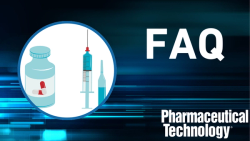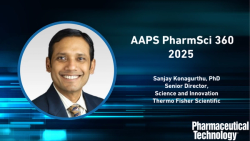
OR WAIT null SECS
- About Us
- Advertise
- Contact Us
- Editorial Info
- Editorial Advisory Board
- Do Not Sell My Personal Information
- Privacy Policy
- Terms and Conditions
© 2026 MJH Life Sciences™ , Pharmaceutical Technology - Pharma News and Development Insights. All rights reserved.
Call for "workable" guideline for biosimilar mAbs
Director General of the European Generic Medicines Association (EGA), Greg Perry, has emphasised the need for EU biosimilar guidelines for monoclonal antibodies (mAbs), as well as a harmonised, global approach to biosimilars in general, at the agency's 8th International Symposium on Biosimilar Medicines.
Director General of the European Generic Medicines Association (EGA), Greg Perry, has emphasised the need for EU biosimilar guidelines for monoclonal antibodies (mAbs), as well as a harmonised, global approach to biosimilars in general, at the agency’s 8th International Symposium on Biosimilar Medicines.
“As regulations fall into place worldwide, there is a need to reach a global agreement on criteria and guidelines for biosimilar medicines in the interest of patients and the better availability of high quality medicines,” said Perry in an EGA press statement.
Progress towards biosimilars regulation has been made in a number of countries outside the EU, including Australia, Canada, Japan, Turkey and the US, and the EGA believes the time is fast approaching to undertake a “benchmarking” exercise. “A consistent, scientific global approach is essential to move towards true global development of biosimilars medicines,” said the EGA statement.
Steps towards a global, harmonised regulatory approach may already be in sight, with the World Health Organization (WHO) due to finalize its guidelines on the evaluation of biosimilars in 2011. According to the EGA, the guidelines will be founded on the same basic scientific principles as in the EU.
In particular, Perry also highlighted the importance of mAbs at the symposium and the need for “workable” guidance in this area. Indeed, according to Peter Gaskin, a Principal Consultant at Aptuit Consulting, a number of companies are already targeting mAbs for biosimilar development. In an article written for Pharmaceutical Technology Europe, Gaskin explained that EU guidelines for biosimilar mAbs would be a significant development, particularly as mAbs represent some of the biggest selling products.
“If healthcare systems are to continue to function long-term, we must address the importance of biosimilar mAbs next,” said Perry. “Science for mAbs is already here today and our industry is expecting a workable guideline.”
For more information about biosimilars, take a look at Pharmaceutical Technology Europe’s special feature: Bioimilars: Too steep a mountain to climb?



